Airto Moreira is widely regarded as one of the greatest living percussionists. He is best known for playing on several groundbreaking jazz fusion albums including Miles Davis’ Bitches Brew, Weather Report’s first album, and Return to Forever’s first two albums. He has also contributed to recordings with Cannonball Adderley, Dizzy Gillespie, Wayne Shorter, John McLaughlin, Al Di Meola, Keith Jarrett, Stanley Clarke, Stan Getz, Carlos Santana, Paul Simon, Mickey Hart, his wife Flora Purim, and many others. Add to all this a couple dozen solo albums and numerous live performances, and you can begin to appreciate the mark that Airto has left on music.
This interview was for a preview article for Airto’s performance with Eyedentity on 9/4/14 at SOhO in Santa Barbara. It was done by phone on 8/8/14. (Janis Wilkins photo)
Jeff Moehlis: What can we look forward to at this upcoming show?
Airto Moreira: Fun music. Fun live music. Also, musicians playing together and feeling good about each other. The unity is very strong. I’m going to be featured playing with Eyedentity. Also, my daughter Diana, she’s going to be singing, and she plays a little percussion. We play real close to each other, which is great. The energy of the whole thing is very positive, and so people can expect that. Whoever’s feeling good, they’re going to feel very good. And if you don’t feel very good, then you will.
JM: You mentioned that your daughter will be performing. Did you encourage her to pursue music, or was it inevitable that it would happen?
AM: It was inevitable. She always loved music, and she used to travel with us all over Europe and Japan, and she always sang one or two songs. So she learned pretty early in life how to face an audience without getting sick [laughs]. You know what I mean, right? Because a lot of people, they think, “Oh, I could do that, I would love to do that.” Then all of a sudden you’re in front of 60,000 people or much more, and then you go, “Oh crap, you mean I’m going to have to sing in front of all of these people?” I think she learned that real well.
Another day we were talking, and she said, “Yeah, it’s funny. To me it feels the same if I sing in a small club or a big concert. It feels the same. I don’t get nervous anymore.” I said, “Oh, good.” That’s it. That’s what we do in life, that’s music. So we better not ruin it getting nervous about it, worried. So that is the kind of energy that is happening.
JM: I remember seeing you perform two years ago at a benefit concert for the TRAP organization. You did an invocation with pandeiro and your voice. To me it felt like that was much more than just a performance. It was much deeper than that. That leads me to the question, what are your views on the spiritual dimension of music?
AM: The spiritual dimension of music, it’s present in all music, in all kinds of music. Every music style, and every band, and every performance, we have our own energy that when we play. We are helped by the spirituality. We don’t have to think about it, because the spirituality is there to help us, and also to help the people to be in touch with everything. It actually is the main energy in music, especially live music, the spirituality of it.
They decided to call music “world music”, I remember that. They tried to separate things. OK, this is from Ghana, and this is from Brazil, and this is from Holland. It was a big thing. All of a sudden nobody really understood what they were saying. They were just talking about music, world music. And now, of course, nobody even knows if it’s “world music” or not, and I prefer it like that. Because then all you have to do, or all I have to do, is to walk onstage and play, and enjoy it. I don’t have to smile, or if I smile it’s because I liked something and so on and so on. Everybody in the band is like that. That’s the spirituality of music.
There are two states of mind that we have. One is in touch with that spirituality, and the other one, it isn’t. There are a lot of things, like people work different jobs at the bank or a salesperson or they are the pilot of a jet, and whatever they do. We all have that energy with us, and that is the spiritual energy. And that is one thing I love the most about music.
JM: I have to ask you about Miles Davis.
AM: Who, who? [laughs]
JM: Exactly [laughs]. What did you learn about music from playing with Miles?
AM: [long pause] Well, one thing is that less is more. Not more and less, or more is less. The less you play, the more people are going to listen to you.
And also, when you play, open your eyes and look at everybody in the band. Be in touch, don’t close your eyes and crash, you know. Because when we close our eyes, we can crash very easily, because we don’t know where the thing is going, especially that kind of music at that time.
Those things were very important. And I also learned how to be nasty, and say, “Get out of my dressing room!” or something like that, or “I don’t want to talk right now!” To be nasty. Because Miles, I think he was the king of that. Everybody was scared to talk to him, and I think they were right. For a year I was behaving like that. “I don’t want to see anybody! Don’t talk to me!” I was trying to take it too far, and I think that with time now, because it has been so many years, I’ve learned that I want to talk to people. I want to talk to everybody, unless I get any bad vibes from them, any negative vibes. I’ll look and I’ll say, “Hey, wait a minute, not right now. Bye.” That’s it. But not to the point of Miles, who used to say, “Get out of here!” Or just send somebody to take that person out. He didn’t even do it. He would have his manager or whoever, he would ask, “Go, call Jack”. He [Jack Whittemore] was the manager. And then Jack would come and say, “OK, get this guy out of here.” That was it.
So I learned beautiful things, musically speaking, and I learned some nasty stuff also. That’s what I learned with the master, the only jazz superstar that ever existed. Of course there are other players, beautiful, incredible players, but Miles, he became really big all over the world because of how he did things. People would read about it, and they would say, “Wow, I’ve got to see this guy.” But it’s OK. He will be around here forever, just like The Beatles.
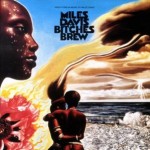
JM: Another question about Miles. When he gathered the band together for the Bitches Brew album, which of course included you, what kind of direction did he give you guys?
AM: The direction was the same as what I just told you, which is “Open your eyes and look at each other, and play. And don’t play too much or too little. Just play right.” “Huh, what? What is he talking about?” To me it was like Chinese or something. What is he talking about? At that time I didn’t really understand, period. But thank God I did the recording and he liked it. And the producer Teo Macero, he liked it, too, and the band liked it. The next day, he invited me to go to The Village in New York, and sit in at the Village Gate. They were playing there for a week. I sat in for a week, and he liked it a lot. I could feel that he liked it. And of course I loved it. At first I was very scared, because I was from Brazil and I knew about Brazilian rhythms, and I’m white. Miles was like The Black Panthers. I was like, “Oh my God, what am I doing here?” But it was cool.
The next week, he invited me to go to Washington D.C. to play. And I said, “Yeah, sure, I can do that.” And he said, “OK, there is a bus that is leaving at 10:00AM from my house. And you’re not going to make any money.” [laughs] And I was like, “What the f…” And I said, “Well, I don’t make any money. For a long time here in New York I don’t make money. So it’s fine with me.” So he said, “All right, see you tomorrow.” There was a bus there, and he drove his Lamborghini, and we rode the bus. We played for three weeks, and he paid me after the third week. He had a bunch of money in his hand [laughs], and he said, “Here, this is yours.” I said, “Mine?” He said, “Don’t you want it? If you don’t want it, I can use it.” [laughs] And I said, “I want it. Of course!” So that was the time that I was playing with Miles Davis.
It was kind of rough, but in reality it was really great. Because when you go through things like that, you start understanding many different things that usually you don’t even bother.
JM: On your webpage you have a great story about how you met Miles Davis. At the end of the story you say that someday you’ll tell about leaving the band. Are you willing to share the story about how that happened?
AM: Oh yeah, I can do that. What happened is that for some reasons, Miles and I were not clicking anymore. It was almost like when you first get married and everything is like a dream – “Oh yeah, yeah” – and then two years later you start knowing each other well, and then you kind of go “Well, OK…” I didn’t like some things that he was doing, and probably he didn’t like some things that I was doing. Because I was challenging him a little bit in certain ways. Not musically, but having friends coming to see me and things like that. He became almost like, “I own you, and you are mine. So you don’t do this, and you don’t do that. And I don’t want you to do this anymore,” and blah, blah, blah. And then I would say, “OK, Miles, I got it. But I’m going to have to do this. I’m doing this and I’m doing that, and this other thing, I don’t care. And these people, they’re my friends from Brazil, and they love you and they love this band. They’re going to be in.” He got real pissed. Nobody would challenge him.
Well, Wayne Shorter, he never had to challenge Miles [laughs], because Wayne was his caliber as a musician, he surpassed everything. But I was a percussionist, and I was there, and I was from Brazil, and as I said, I was white. So he got real pissed.
One day he said, “OK, we’re going to go to Europe on a tour for three weeks. This is the money I can pay you.” And he told me. And I said, “But Miles, this money is what I make over here. So how come I’m going all the way to Europe, and you want me to make the same money?” And he wanted me to stay in a different hotel, “You want me to do this and do that, to be on a flight with three stops”, and all this bull. He said, “Well, if you want, that’s the way it is. If you don’t, you’ve got to tell me because I have somebody to replace you.” I said, “Well, I’ll think about it. We’ll see.” He said, “No, no. You have to tell me now.” I said, “OK, can I not go?” and he said, “Yeah.” So then I didn’t go. He took Donald Alias, a beautiful, great musician, and they went.
When they came back, they were playing at the Beacon Theatre in New York, a big concert. The place was sold out. I was out here [in Los Angeles] recording with Cannonball Adderley, at Capitol Records. I got a phone call, it was his manager, a guy that I liked a lot. He said, “Listen, we are playing here in New York the day after tomorrow. So, are you playing?” His name was Jack Whittemore. And I said, “Well, Jack, nobody invited me. But I’m here recording with Cannonball.” He said, “Oh, I feel good about it. Cannonball is…” blah blah blah. And then he said, “So listen, do you want to play?” I said, “Well, yeah.” He said, “Good. I’m sending you a round-trip ticket. You come here and be at the Beacon Theatre for the rehearsal”, blah blah blah.
And then it was not a rehearsal, it was a soundcheck. Of course, Miles never liked a rehearsal. So I walk in with my percussion, with two suitcases. When I looked at the band, there were two percussionists already over there. And I thought, “Oh my God, what am I going to do now?” You know, they’re going to eat me alive or something [laughs]. But I just walked in on the stage and said, “Hey guys, how are you?” And Donald Alias, he said, “Hey, how are you? Are you playing?” I said, “Yeah, sure.” I just opened my things, put it on the floor, and I said to them, “Whoever wants to play my stuff, just go ahead and do it. Pick it up and play. We’re playing together.”
Meanwhile, Miles is walking across the stage with his entourage, two beautiful women [laughs] and this guy [James] Finney, he used to arrange Jimi Hendrix’s hair. He was a famous hairdresser. Then after Jimi died, a few weeks later Miles hired him. They walked in, and I knew that Miles saw me but he didn’t turn to look at me. He went to his dressing room, and then that was it. We did the soundcheck, and we played. It was a great concert. Then, he used to call everyone one by one and pay us cash. But they didn’t call me. So I talked to Jack, and I said, “What is happening? You’re not paying me?” He said, “Oh, no, no. They’re paying you. You’re getting paid. Don’t worry. Maybe not tonight, but…” So Miles never paid me.
So I went home, and then the next day Jack Whittemore called me and said, “Listen, Miles told me that you were not with the band anymore, unless if you want to do what he wants you to do. Then, you can still play with the band. Otherwise this is it.” And I said, “So then this is it. And where is my money?” Then Jack said, “OK, I’ve got it. Why don’t you come here to the office and I’ll give it to you.” I got paid, and I went home, and the next day I came down here [to Los Angeles] to record with Cannonball. We did a beautiful, great album that is called The Happy People, which is a song that I wrote, and it was beautiful. A great album. And that was it. So we didn’t play together anymore. Nobody said, “You’re fired” or “I quit”. I think it was pretty smooth.
I talked to him after that, in Nice in France. They have a beautiful jazz festival there. I was playing with our band, me and Flora. I was watching this great blue water, you know, in Nice. And then I heard some voices or whatever, so I turned and I looked up, and there was Miles. It was an apartment right on top of mine [laughs]. Wow. My heart went, like, “Woo”. I said, “Hi, Miles, hi!” And he said, “Why don’t you come over?” So I ran up the stairs, and then nobody was answering, and I thought maybe he’s changed his mind, doesn’t want to talk to me or something. So I wrote a little note for him, said “Hey Miles, you are the greatest” blah blah blah, and I was sliding that under the door. When I was doing that, I was down on my knees doing that, and then he opened the door. Boom! And I was down on my knees [laughs]. What a jive ass! And he said, “Stand up, stand up!” So I stand up, of course, and then I got the note and I said, “OK, I wrote this for you.” And he said, “Come in. I want you to meet my son.”
So I walked in. I think he had one son, or whatever. He said, “OK, this is so-and-so, my son, and this is Airto. He’s the craziest Brazilian percussionist on the planet” or something. It was like, “Whoa!” And then he went to the kitchen. I don’t know what he was doing. I just know that I had to talk to his son. His son was about twenty, twenty-one. I talked to his son for twenty minutes and then I said, “OK, tell Miles that I’ll see him whenever”, you know, soon. He said, “OK, OK.” So that’s it. Then I didn’t see Miles anymore [laughs]. It was really weird.
He loved to be like that. I guess it’s OK when you have that kind of power. But then, Dizzy Gillespie, I toured a lot with him, and he had that kind of power, but he never really used it. Unless there was something really wrong. Then he would say, “OK, well, get out of here.” And that was it. Because some people, they just want to talk and talk and talk and talk. But that’s my story, a little story about Miles and when I played with him.
JM: After working with Miles, you contributed to the first Weather Report album and the first two Return to Forever albums. When you look back at those forty years later, what are your reflections on those recordings?
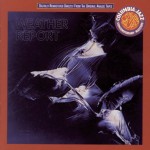
AM: The Weather Report, it was kind of fast. I didn’t really get a good rapport with the band. They had a band that they knew each other, but they didn’t have a percussionist and they wanted me to play. So I went to New York, the CBS Building, and there was a big studio in CBS. It’s a beautiful place. It’s still there. And I rehearsed, but I didn’t really rehearse because they had played already. The songs that I played on it, I don’t remember how many, it was done. So they needed somebody to play percussion on it, especially at that time that percussion had become an important part of the music, almost any music. There were percussionists all over the place. Joe Zawinul talked to me, and after I recorded he said, “Whoa, do you want to go to Europe with us? We’re gonna go.” And I said, “Well, I would go but I can’t because I’m playing with Miles. I can’t leave the band just like that.” So he said, “OK, get me somebody” [laughs].
So I called a friend of mine, me and Flora, and this guy was in Miami. His name was Dom Um Romao. He was a very good percussionist. He passed already. We called him, and so he drove to New York from Miami. His car, this old beat-up car [laughs]. He just showed up and said, “OK, I’m here.” And he said, “OK, man.” I loaned him some of my instruments to play, because he didn’t have enough. He was a drummer. So he went to CBS, and he rehearsed with them and they liked it. Joe Zawinul, who was the main guy, said, “OK, you want to go to Europe?” “Sure.” And then off he went, with my percussion [laughs]. They had an extensive tour. It was beautiful, it was great. So that’s Weather Report. I never really performed, like a live performance, with them. Dom Um Ramao did it.
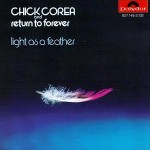
And then Chick Corea, I met Chick Corea when I was playing with Miles Davis. When he left, then he put a band together with Barry Altschul and two other guys. His band was good, but it was too complex. They were playing free music, but crazy free music. So Chick didn’t really want to play like that. He thought he wanted to do that, but he didn’t. So he called Flora, and Flora went there and she started rehearsing with them. And one day I went to pick up Flora, they were finishing with the rehearsal, and Chick asked me, “Airto, we are playing some kind of Brazilian bossa nova, that kind of stuff, and I’d like you to talk to the drummer here, and see if you can pass to him some of your knowledge about the Brazilian rhythms.” And so on and so on. So I talked to the guy a little bit, and then Chick said, “OK, why don’t you sit down and play a little bit.” So we started playing, and I think what happened was that there was a whole different thing. And that’s what Chick wanted. So Chick said, “OK, let’s take a break. Twenty minutes.”
And then I went out with the drummer, his name is Horace Arnold, and I said, “Listen man, Chick wanted me to play, and I would because Flora is singing with the band. If I was part of the band, it’d be great.” So Horace said, “Oh, you want the gig?” [laughs] And I said, “Well, yeah. Is that OK with you?” And he said, “Yeah, man. I’m a jazz player. I don’t want to play this stuff that Chick wants me to play. So you got it. Great.” So that was it. We went back and Horace told Chick, “OK, I’m going.” He left, and we [Airto and Chick] went out somewhere and we talked. He asked me if I could be part of the band. So I said, “Sure.” And that was Return to Forever.
Stanley Clarke [who played bass with Return to Forever], actually he was a boy. He was maybe seventeen or something. He came from Philadelphia, and he had an acoustic bass. He didn’t play electric bass yet. So he didn’t haven’t have a place to stay, so he stayed with us on 72nd and Central Park West in New York. And then we rehearsed together. He was sleeping on the floor, him and his wife Caroline Clarke. But everything was OK, and there was always food there and water. We rehearsed a lot to get that thing so tight, and then we went out and we played concerts. And then we recorded the first two albums. It was for real. It was beautiful. I liked it a lot.
And then later on, two years later, something like that, Chick wanted to play electronic music, more like electric music. And he wanted me to do some voice effects, and to put some effects on my percussion, and this and that. I didn’t feel good about it. And then he asked Joe Farrell, a beautiful, great saxophone player, he told Joe Farrell, “OK, I want you to use a microphone on the bell of the saxophone, because we want to make this kind of electronic.” And we had a meeting, and Joe Farrell simply said, “OK, I don’t want to play that. I don’t want to do that. I’m sorry. I’m happy right now.” So that was it. And I said, “OK, listen man, I don’t want to be involved with electronic music. I’m sorry.” And I don’t know what Chick said, but he was OK. He was already a Scientologist, so you could shoot him with a bullet and he wouldn’t say “Ooh!” [laughs] Besides that, you’re very precise. If you’re going to do something, then you’re going to do that. And I didn’t like that. We played, including Joe Farrell, you know Chick didn’t like it at all but we were the band. So we did a bunch of tours and the we recorded, Germany and then New York. That’s that. Wow! Man, I’m talking too much.
JM: I’m loving it! This seems like a totally different thing – you also recorded with Paul Simon. For example you played cuica on “Me and Julio Down by the Schoolyard”. That seems so different from the jazz stuff that you were doing. How did that come about?
AM: I don’t know how Paul heard of me, but his manager called me, and he told me they were recording, so on and so on, and Paul liked the way I played and there was some nice rhythm stuff that he wanted to have me play. We also rehearsed a lot, and we recorded. It was a beautiful studio in New York. And Paul, when he writes or he composes something, he likes the music to be the way that he is thinking. It was very hard to get him to do something else, but he didn’t have to. His songs were beautiful, and he was Paul Simon [laughs].
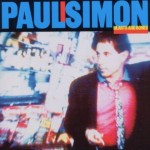
So I went to the studio, we rehearsed again. I think Steve Gadd was on drums. Some of the stuff was David Weckl playing. He was very young. He was just up coming. I ended up recording a bunch of songs. That was real nice. We toured in Asia, and we toured all over Europe, Japan and Hong Kong and everywhere [this was the Summer Evening Tour in 1982, 1983]. People were going crazy. We played Israel. I’ve been watching what’s happening now over there. It’s a shame. People, they cannot get together. But at that time it was just great. There was a recording and maybe 20 concerts. It was great. I liked it a lot.
JM: When I look at the many things that you’ve done, a couple things that jump out at me are your involvement with a couple of movies, namely The Exorcist and Apocalypse Now. Can you tell me a little bit about how that all came together?
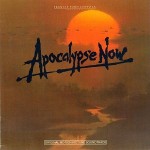
AM: Apocalypse Now, we had a band with Mickey Hart who was playing with The Grateful Dead. We were friends. I was friends with all of them. They had a huge place, a huge studio in Marin County. Francis Coppola, he wanted to have sounds that portrayed the people, he used to say, the people who are up the river. It was like that. He asked Mickey and I and another two percussionists to do the percussion track, so we did that. It was just a beautiful thing to work on it. That is one of the great things in this world, that sometime they’re going to review that and go, “Oh wow, look at that.”
JM: What about The Exorcist?
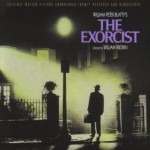
AM: I did a few sounds on that. Of course, the sounds that I played, they were like a cuica, a big one, mixed with my voice. So it was like [in an Exorcist-worthy voice] “wooa, oooah”. Bill Friedkin was the director, and he liked it very, very much. And then some other stuff Flora did, and they also liked it. It was at the Universal Studios, if I’m not wrong. This was also very nice.
But I didn’t watch that, The Exorcist. I didn’t have to watch the whole thing, because they had parts that they wanted me to play on. I did what they wanted, and they sent my check to the union [laughs], and I put it in the bank and that was it. It was the first real horror movie, like modern. We’re not talking about Frankenstein and all that stuff.
JM: Do you remember which scenes your percussion was used on?
AM: No. I couldn’t tell you. It’s been a long time.
[JM: Note that some sources list Airto as a performer on the rejected Lalo Schifrin score. This conversation makes me think that he did more.]
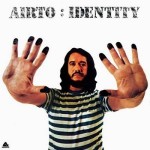
JM: You’ve released a number of solo recordings. Do you have any recommendations of a few of those that you think would be the best introductions to your music, for someone who’s not familiar with what you’ve done?
AM: Oh boy. There are too many, and I would have to really make a list and then listen to them. It’s hard. It’s very hard. It’s not that I’m trying to get out of this one. There are great albums. If I start thinking about it, I will find at least five, six, or more. But maybe when I see you [at the upcoming concert] I’ll have that [laughs].
JM: It seems that you should have a box set that compiles your best work. You’ve done so much over the years.
AM: Yeah. I have twenty-three albums. I mean, it’s not a lot. But when I think about it, it is a lot.
JM: A question about the future. What are your plans for the near future? Is the show coming up in Santa Barbara part of a bigger tour? Do you have plans to record anything else?
AM: We have about four or five concerts. And another recording – yes. You know, we could record, but recording for me is something, it’s not that it is very serious, but it’s something that’s got to be right. Everything, all the sounds, they’ve got to be right. A lot of people record these days, especially live music, they just go “Boom”, and they go, “OK, we’ve got a new album.” It’s not like that. I’m still old-fashioned when it comes to music. It’s very serious. It’s my life.
When you ask me if I have any plans, and what am I going to be doing, and what is going to be happening, you know, my plan really is I want to stay alive enough time to play some more, and keep playing music. That’s that. I am just like anybody else. When we get older – I’m not too old, but I’m 73 – when I think about, “OK, what did I do in my life?”, it’s pretty incredible. Everything that I have done, it’s like, “Whoa!” Just the plane trips. Going to Europe, coming back over here for two days, then going to France and coming back here, and then… It’s like, oh my God. But, so far so good. I don’t want to slow down too much. But I don’t want to be traveling, especially traveling the way I was for such a long time, because it’s already a toll on me. I’m not Superman. I’m just a Brazilian percussionist. That’s what I am.
JM: I understand that you used to live in Santa Barbara, and of course this preview article is for a show here in Santa Barbara. Is there anything that you remember particularly fondly about living here?
AM: Yeah. We lived right on The Mesa, right on the ocean, the Palisades or whatever [JM: Palisades Drive?]. I used to be sitting out there watching the pelicans. They would be flying lower than I was. I was like, “Wow, look at that! It’s a bird – it’s a pelican!” Plus whales and dolphins and everything. Even the red-tailed hawks, big ones. They used to have a nest in our tree. It was a real tall eucalyptus tree. So I remember that.
I remember recording at this great studio called Sound Design, with Dom Camardella. He owns the studio now. He’s a great engineer, he’s a very good piano player, and he’s a good producer. We did a lot of recording there. That was nice. Plus the musicians that we played together, like Randy Tico and Jeff Elliott, and a lot of others.
One last thing that I remember about Santa Barbara is that I used to go out of the house and then down the steps, all the way down to the sand, to the ocean. I would just walk around and look, and the sun was beautiful. It was never too hot or too cold, it was never raining that much. I never felt an earthquake over there. But after years, I started thinking, how many times can you walk on the beach and say, “What a beautiful day. Oh what a beautiful day.” And the next day was like, “Wow, what a beautiful day.” And the next day… [laughs]. So a little bit too much, actually. Personally I needed a little more action, and I didn’t have enough action there even though I had friends and I played music and so on. Me and Flora, we lived in New York for nine years, and New York is a whole different thing. New York is The Bomb, that’s it. When you’re there, you better know that and just do what you have to do, and don’t be fooling with nothing. In New York, there’s people from all over the world all the time. You can meet them and you can see them. Santa Barbara is a beautiful, beautiful place, and the food and so on and so on. People bring food on the weekends from up in the mountains, they have farms there. It’s almost like you get spoiled, but you cannot forget that we live in this world.
JM: Where are you speaking to me from?
AM: I’m in L.A.

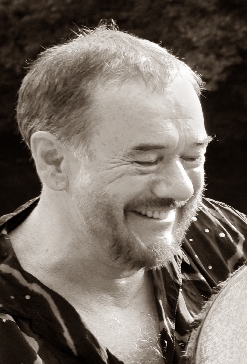
Discussion
No comments for “Interview: Airto Moreira”